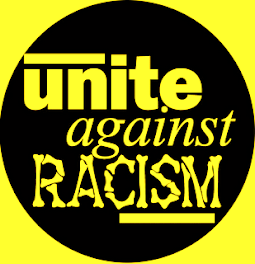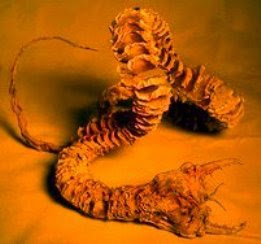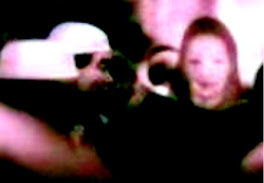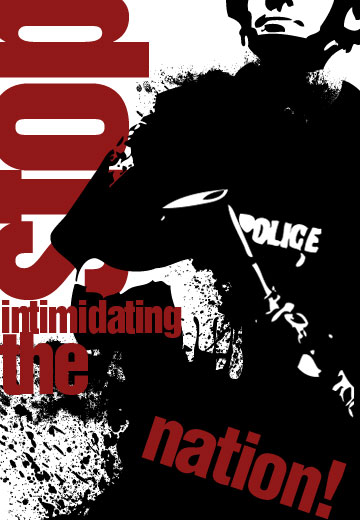Karl Heinrich Marx (1818 to 1883) was a 19th-century Prussian philosopher, political economist, sociologist, humanist, political theorist and revolutionary.
Karl Marx said: (emphasis added):
“Religious suffering is, at one and the same time, the expression of real suffering and a protest against real suffering.
Religion is the sigh of the oppressed creature, the heart of a heartless world, and the soul of soulless conditions. It is the opium of the people…
The abolition of religion as the illusory happiness of the people is the demand for their real happiness….
The criticism of religion is, therefore, in embryo, the criticism of that vale of tears of which religion is the halo….
Criticism has plucked the imaginary flowers on the chain not in order that man shall continue to bear that chain without fantasy or consolation, but so that he shall throw off the chain and cull the living flower.”
The quote, above, could be perhaps interpreted as follows (emphasis added):
Religion is, indeed, the self-consciousness and self-esteem of man who has either not yet won through to himself, or has already lost himself again.
But man is no abstract being squatting outside the world. Man is the world of man-state, society.
This state and this society produce religion, which is an inverted consciousness of the world, because they are an inverted world.
Religion is the general theory of this world, its encyclopedic compendium, its logic in popular form, its spiritual point d'honneur, its enthusiasm, its moral sanction, its solemn complement, and its universal basis of consolation and justification.
It is the fantastic realization of the human essence since the human essence has not acquired any true reality.
The struggle against religion is, therefore, indirectly the struggle against that world whose spiritual aroma is religion. Religious suffering is, at one and the same time, the expression of real suffering and a protest against real suffering.
Religion is the sigh of the oppressed creature, the heart of a heartless world, and the soul of soulless conditions. It is the opium of the people.
The abolition of religion as the illusory happiness of the people is the demand for their real happiness. To call on them to give up their illusions about their condition is to call on them to give up a condition that requires illusions. The criticism of religion is, therefore, in embryo, the criticism of that vale of tears of which religion is the halo.
According to Marx, religion is an expression of material realities and economic injustice.
As a consequence of this, problems in religion are ultimately problems in society.
Religion is not the disease, but merely a symptom.
Religious beliefs and blind faith is used by dictators, oppressors, politicians, and many others, to make people feel better about the distress they experience due to being exploited, downtrodden and therefore uneducated, unhealthy and poor.
This is the true origin of his comment that religion is the “opium of the masses” — but as you will see if you study Karl Marx, his thoughts are much more complex than are commonly portrayed in the often quote phrase:
‘Religion is the opium of the people’
Some references:
- Seven Theories of Religion. Daniel L. Pals.
- Explaining Religion: Criticism and Theory from Bodin to Freud. J. Samuel Preus.
- Karl Marx’s Interpretation of History. M.M. Bober.
- Manifesto of the Communist Party. Karl Marx, Friedrich Engels.
- The Worldly Philosophers: The Lives, Times and Ideas of the Great Economic Thinkers. Robert L. Heilbroner.
- The Sacred Canopy: Elements of a Sociological Theory of Religion. Peter L. Berger.
- A History of God. Karen Armstrong.
- Perspectives in the History of Religions. Jan de Vries.
- Theories of Primitive Religion. E.E. Evans-Pritchard.

Bertrand Arthur William Russell, 3rd Earl Russell, OM FRS (1872 to 1970), Welsh, philosopher, historian, logician, mathematician, advocate for social reform, and pacifist.
The well know thinker Bertrand Russell had lots to say about religion; here are a few quotes:
"My own view on religion is that of Lucretius.
I regard it as a disease born of fear and as a source of untold misery to the human race.
I cannot, however, deny that it has made some contributions to civilization. It helped in early days to fix the calendar, and it caused Egyptian priests to chronicle eclipses with such care that in time they became able to predict them. These two services I am prepared to acknowledge, but I do not know of any others."
(Bertrand Russell / Has Religion Made Useful Contributions to Civilization? / 1930)
"An atheist, like a Christian, holds that we can know whether or not there is a God.
The Christian holds that we can know there is a God; the atheist, that we can know there is not.
The Agnostic suspends judgment, saying that there are not sufficient grounds either for affirmation or for denial.
At the same time, an Agnostic may hold that the existence of God, though not impossible, is very improbable; he may even hold it so improbable that it is not worth considering in practice. In that case, he is not far removed from atheism."
(Bertrand Russell)
"And if there were a God, I think it very unlikely that He would have such an uneasy vanity as to be offended by those who doubt His existence."
(Bertrand Russell)
I agree with both Karl Marx and Bertrand Russell, but to each his own; religions are many, and in my opinion they are all the same, they teach how to live ones life well, to be harmonious, to be peaceful, to honour and respect others, to do good, and avoid evilness and wickedness.
Alas history has shown that many, if not all wars and conflicts have religion at their roots, of course it is not religion per se which has caused confrontations, but the way man has used religion as a means to an end.
Perhaps Buddhism is the only religion which has, thus far, managed to have not been polluted by wicked men, and remains a bright beacon of hope for the future of humankind.
As for me, I am an open-minded freethinker.
Race, religion, ethnicity, sex, ability, wealth, status, caste, age, intellectuality, or any other artificial barriers do not interest me.
To me, a person’s actions and behaviour are the only indicators of his character and humanity.
I recall this Christian saying:
“Do unto others, as you would have others do unto you”
If each and everyone took heed and followed that simple credo; the world would be a far far better place than it is today.








.jpg)





























